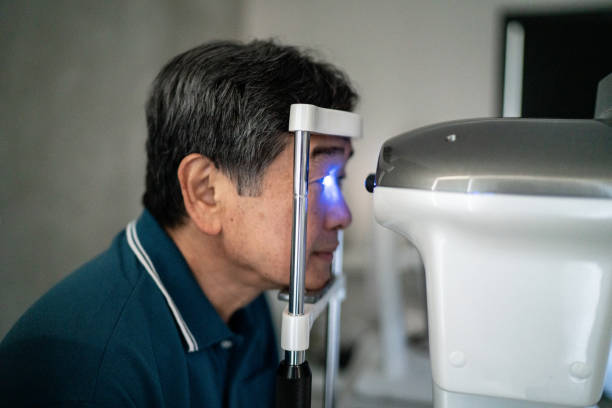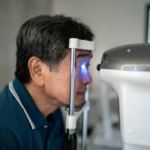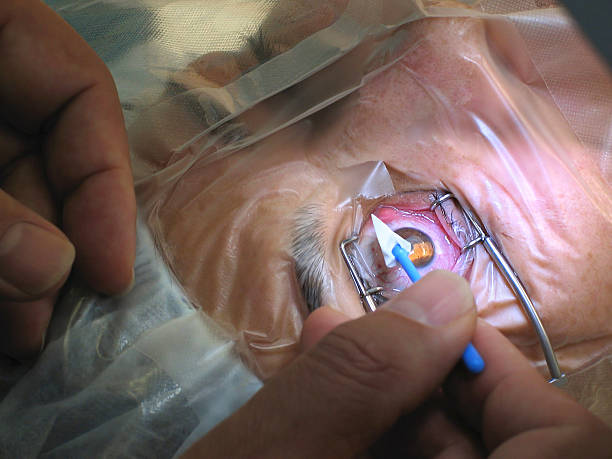Introduction
Imagine a world where you wake up and instantly see everything clearly — no fumbling for glasses or struggling with contact lenses. That’s the promise of laser eye surgery, a life-changing procedure that has helped millions achieve perfect vision.
But with such a major decision comes a big question: Is laser eye surgery really worth it in 2025? Let’s explore the benefits, potential risks, recovery details, and everything else you should know before making an informed choice.
What Is Laser Eye Surgery?
Laser eye surgery is a medical procedure that uses advanced laser technology to reshape the cornea — the clear front part of your eye — so that light focuses correctly on the retina. This correction improves vision and reduces or eliminates the need for glasses or contact lenses.
It’s mainly used to treat:
- Nearsightedness (Myopia)
- Farsightedness (Hyperopia)
- Astigmatism
Modern techniques make laser eye treatment precise, safe, and incredibly effective, offering permanent vision correction for many patients.
See more: Is LASIK Right for You? A Complete Guide to Laser Vision Correction
Types of Laser Eye Surgery in 2025
Laser eye surgery isn’t a one-size-fits-all procedure. There are several types available, depending on your eye structure, vision needs, and lifestyle.
1. LASIK (Laser-Assisted In Situ Keratomileusis)
The most common and well-known form of laser eye surgery, LASIK involves creating a thin flap in the cornea using a femtosecond laser. The surgeon reshapes the corneal tissue beneath and replaces the flap.
- Recovery: 24–48 hours
- Pros: Quick healing, minimal discomfort
- Cons: Not ideal for very thin corneas
2. PRK (Photorefractive Keratectomy)
PRK was the first type of laser eye surgery and is still widely used. Instead of creating a flap, the outer corneal layer is removed and naturally regenerates.
- Recovery: 1–2 weeks
- Pros: Suitable for thin corneas and active individuals
- Cons: Longer recovery, mild discomfort initially
3. SMILE (Small Incision Lenticule Extraction)
SMILE eye surgery is the latest advancement, using a single laser to make a micro-incision and remove a small piece of corneal tissue (lenticule).
- Recovery: 1–2 days
- Pros: Minimal dryness, no flap, faster healing
- Cons: Limited to certain prescriptions
Who Is a Good Candidate for Laser Eye Surgery?
Not everyone is eligible for laser eye treatment. You might be a good candidate if you:
- Are 18 years or older
- Have stable vision for at least 12 months
- Have healthy corneas and overall good eye health
- Are not pregnant or breastfeeding
- Have realistic expectations about the results
Your ophthalmologist will conduct detailed eye mapping and tests to confirm if the procedure is right for you.
The Laser Eye Surgery Procedure: Step by Step
The process may sound complex, but it’s surprisingly quick — often under 30 minutes for both eyes.
Step 1: Numbing drops are applied to your eyes for comfort.
Step 2: The laser precisely reshapes your cornea according to your prescription.
Step 3: The corneal flap (if created) is repositioned, and the healing begins immediately.
Most patients notice clearer vision within hours after the surgery.
Recovery Time and Aftercare
Eye surgery recovery time varies by procedure, but most patients resume normal activities within a few days.
Post-surgery care tips:
- Use prescribed eye drops to prevent infection and dryness
- Avoid rubbing your eyes for at least a week
- Wear sunglasses outdoors to protect from UV light
- Refrain from swimming or applying makeup for a few days
- Attend all follow-up appointments for optimal healing
By following your doctor’s aftercare plan, you can ensure a smooth and safe recovery.

Benefits of Laser Eye Surgery
Is it worth it? For many people, absolutely. Here’s why:
- Instant Improvement: Noticeable vision enhancement within 24 hours.
- Long-Term Results: Most achieve 20/20 vision or better.
- Convenience: No more glasses or contact lens maintenance.
- Confidence Boost: Clear vision can improve your quality of life and self-esteem.
- Cost Savings: Over time, it can be cheaper than years of contact lens expenses.
These benefits make laser eye surgery a popular choice for people who want permanent vision correction with minimal downtime.
Risks and Side Effects
While laser eye surgery is considered safe, it’s important to understand the potential downsides.
Common temporary side effects include:
- Dry eyes for a few weeks
- Light sensitivity
- Halos or glare around lights at night
These symptoms typically fade as your eyes heal. Rare but serious complications may include infection, under-correction, or over-correction — usually preventable by choosing an experienced surgeon.
Laser Eye Surgery Cost in 2025
The cost of laser eye surgery in 2025 varies depending on the type of procedure, clinic, and surgeon expertise.
Average cost per eye:
- LASIK: $2,000–$3,000
- PRK: $1,500–$2,500
- SMILE: $2,500–$3,500
While the upfront cost may seem high, many find it worthwhile compared to years of glasses and contact lenses. Some clinics offer financing options or payment plans to make it more affordable.
Long-Term Eye Care After Surgery
After laser eye treatment, maintaining your vision is key.
Long-term care tips:
- Schedule annual eye exams to monitor vision stability
- Stay hydrated and eat foods rich in vitamin A
- Use artificial tears if dryness persists
- Protect your eyes from UV exposure with quality sunglasses
With proper care, your results can last decades — providing a lifetime of clear, comfortable vision.
So, Is Laser Eye Surgery Worth It?
For most patients, laser eye surgery is absolutely worth it. It provides lasting vision improvement, convenience, and freedom from corrective lenses. However, the decision should be made after thorough consultation with a qualified ophthalmologist who can evaluate your eye health and expectations.
With advanced technology and expert care, 2025 continues to mark a new era for safe, effective, and life-changing vision correction.
FAQS
Results are generally permanent. Most patients enjoy clear vision for many years, though natural aging may affect near vision later in life (a condition called presbyopia). Regular eye exams help maintain your results
Common side effects include dryness, halos, or light sensitivity, which usually disappear within weeks. Serious risks are rare but can include infection or uneven correction. Choosing a skilled surgeon minimizes these complications.
You’re a good candidate if you’re over 18, have stable vision, and healthy corneas. People with severe dryness, eye diseases, or unstable prescriptions may not qualify. A consultation with an eye specialist is the best way to find out.
Most people notice improved vision within 24–48 hours. Complete recovery can take a few weeks, depending on the procedure type. Following your surgeon’s aftercare instructions is essential for smooth healing and optimal results.








